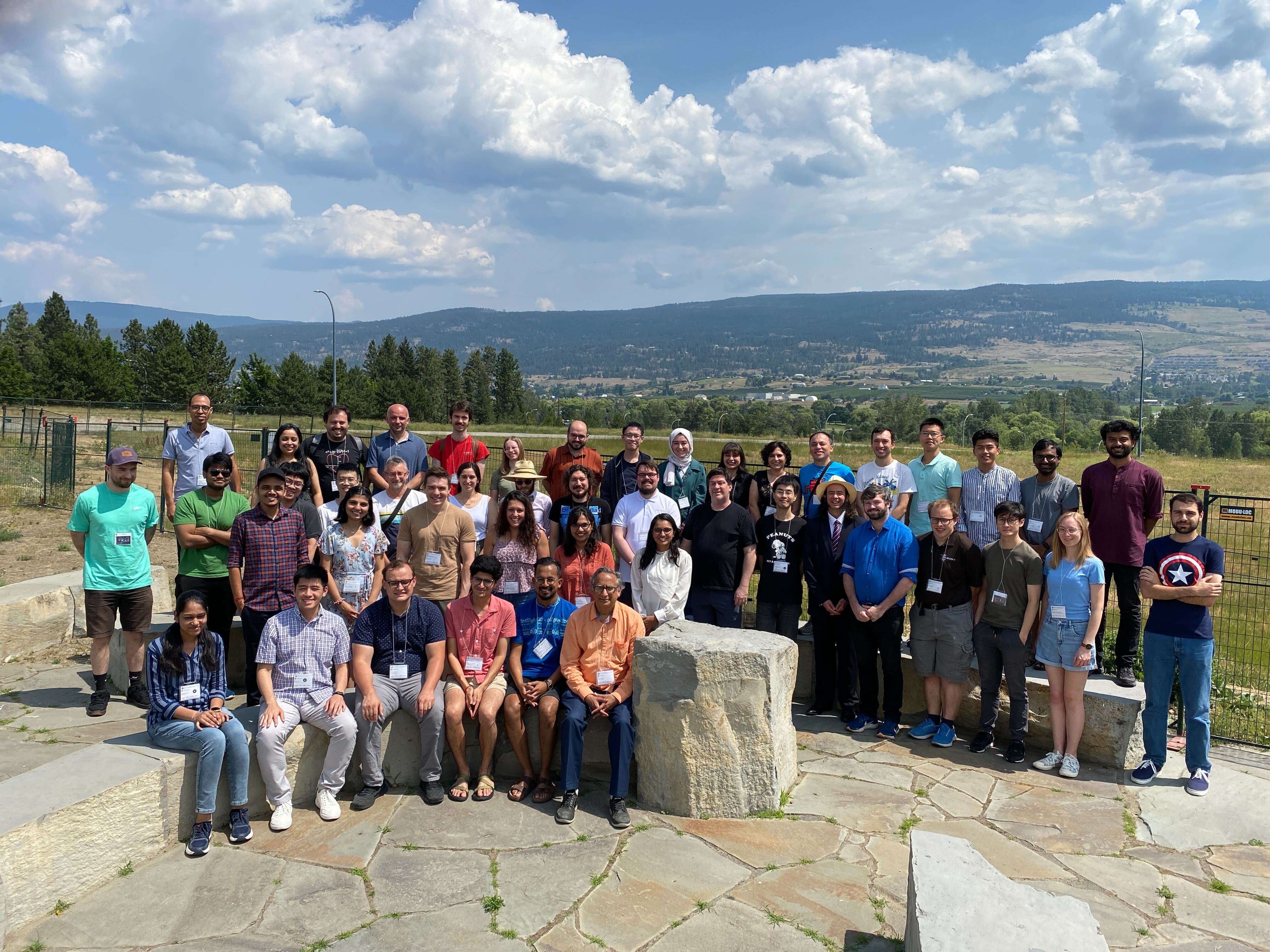Inclusive Paths in Explicit Number Theory (23ss001)
Organizers
Habiba Kadiri (University of Lethbridge)
Alia Hamieh (UNBC)
Ghaith Hiary (Ohio State University)
Greg Martin (University of British Columbia)
Nathan Ng (University of Lethbridge)
Allysa Lumley (York University)
Description
The Banff International Research Station will host the "Inclusive Paths in Explicit Number Theory" workshop at the UBC Okanagan campus in Kelowna, B.C., from July 2 to July 15, 2023.

How primes and L-functions are linked is at the core of analytic number theory, with the Gener- alized Riemann Hypothesis (GRH) being its star conjecture. The field of explicit number theory focuses on simple yet notoriously difficult questions such as the Goldbach conjecture (Can every even number be written as the sum of two primes?) and Legendre’s conjecture (Is there a prime number between every two consecutive squares?). It is likely one of the most exacting flavors of number theory: in addition to scientific creativity, it requires precision and endurance to produce meaningful results. Working in teams with complementary expertise would allow to tackle some problems in the field more efficiently.
The Summer School Training Camp: Inclusive Paths in Explicit Number Theory is one of the highlight events associated to the PIMS-funded Collaborative Research Group (CRG) on L- functions in Analytic Number Theory. For the first time, all leading experts in the field will come together to provide mentorship to a new generation of student researchers that is more represen- tative of our diverse society. After an initial week of training, the participants will have the op- portunity to work on cutting-edge problems in a collaborative context with senior and emerging researchers.
The Banff International Research Station for Mathematical Innovation and Discovery (BIRS) is a collaborative Canada-US-Mexico venture that provides an environment for creative interaction as well as the exchange of ideas, knowledge, and methods within the Mathematical Sciences, with related disciplines and with industry. BIRS is supported by Canada's Natural Science and Engineering Research Council (NSERC), the U.S. National Science Foundation (NSF), Alberta's Advanced Education and Technology, and Mexico's Consejo Nacional de Ciencia y Tecnología (CONACYT).





